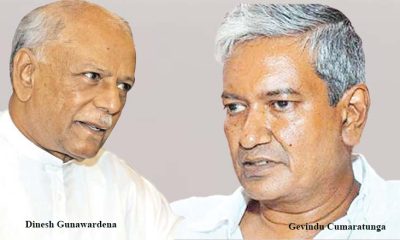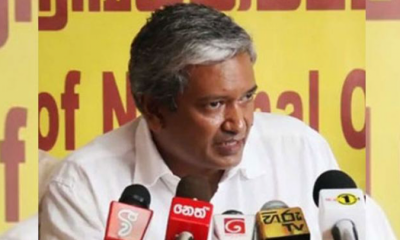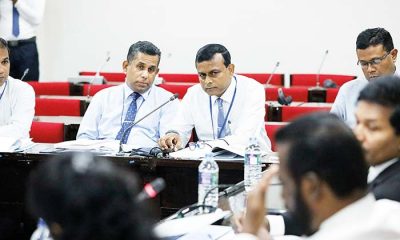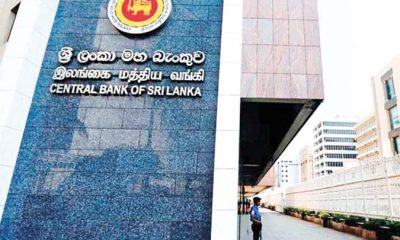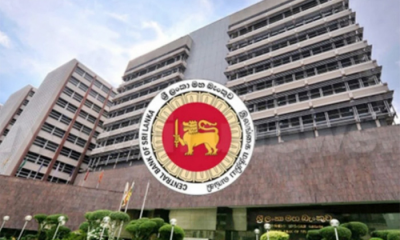News
Harsha says govt. gave haircut to EPF unfairly sparing banks and insurance companies
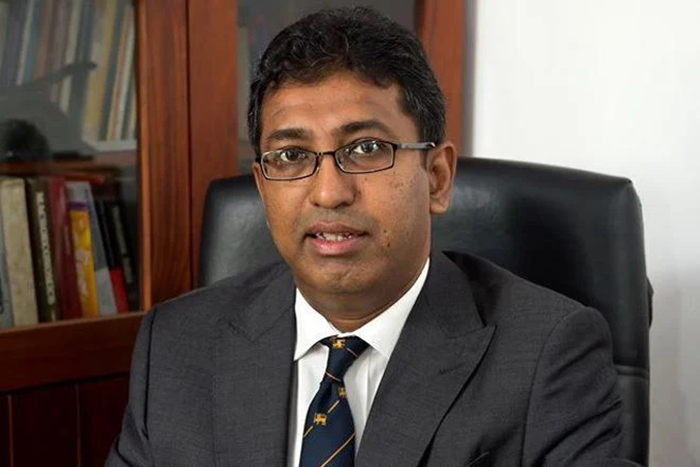
The Committee on Public Finance (COPF) had not received the data that the Central Bank and the Ministry of Finance had when it discussed the resolution on domestic debt restructuring, CoPF Chairman and Samagi Jana Balawegaya (SJB) MP Dr. Harsha de Silva said in a television interview on Wednesday.
“We held discussions with officials of the Central Bank, the Ministry of Finance, and other stakeholders for two days based on the data available to us. They told us that domestic debt restructuring must be done,” he said.
Dr. de Silva said that the Central Bank Governor had said that he wasn’t a great fan of domestic debt restructuring. However, the latter said that the country had to restructure its domestic debt because foreign debt holders were insisting on it, the SJB MP said.
“My stance was that we must avoid restructuring domestic debt. However, if the government insists that this must be done, I have suggested ways in which we could do this in the two blueprints I presented in 2022 and 2023,” Dr. de Silva said.
The SJB MP said that the IMF had not told Sri Lanka that it must restructure its domestic debt. The IMF wanted Sri Lanka’s authorities to restore debt sustainability by reducing the level of public debt below 95 percent of GDP by 2032; reducing the average central government gross financing needs (GFNs) in 2027–32, including from the materialiation of contingent liabilities, below 13 percent of GDP; keeping FX debt service of the central government below 4.5 percent of GDP in any year during 2027-32; and to ensure that the fiscal and external financing gaps are closed.
“Why did we have to restructure domestic debt, then? Reducing the level of public debt below 95 percent of GDP by 2032 is not a difficult thing. Reducing the GFNs is tougher. There are two parts to achieving this. First is the fiscal pillar, i.e., reducing the budget deficit. How do we do this? We have to increase tax revenue, and reduce expenses. The extent of debt restructuring depends on our ability to reduce the budget deficit,” he said.
Dr. de Silva said the government has believed that they can’t reduce the budget deficit beyond this point. Thus, they have asked foreign debt holders for a 30 percent haircut, he said.
“Then these debt owners insist that we also restructure domestic debt, since they have to take a haircut. So about 0.5 percent of the GDP worth of domestic debt had to be restructured,” he said.
The problem is that the burden of the entire debt restructuring has fallen on the EPF, while banks and other such institutions have been made exempt. Out of the total debt portfolio, EPF held 42 percent, while banks held 45 percent, he said. About eight percent was held by insurance companies, MP de Silva said.
“There wouldn’t be any problem if the burden was divided in an equitable manner,” he said.
Sri Lanka had to issue treasury bonds at high interest rates in the last few years because everyone knew that a haircut was inevitable.
“An investor would purchase a bond at 28 percent, expecting that he or she would have to take a cut of about eight percent. However, a large number of those who bought bonds at an interest rate of 28 to 30 percent didn’t have to take a haircut at all. But EPF has to take a big cut and get nine percent interest,” he said.
The SJB MP said those who defend the decision to exempt banks and insurance companies from debt restructuring claim that banks already pay a 50 percent tax on their profit and that the exemption would prevent a collapse in banks. However, both claims are false, he said.
“Funds like the EPF are the last to be affected in all other countries that have restructured domestic debt. Those who contribute to the EPF have no say in how their money is invested. If the burden of domestic debt restructuring was divided equally, both banks, EPF, and insurance companies would have had to pay relatively bearable amounts, and it would not have led to a collapse in the banking sector,” he said.
The SJB had proposed to divide restructuring equally and give banks regulatory forbearance, i.e., a regulatory policy that permits banks and financial institutions to continue operating even when their capital is fully depleted, he said. (RK)
News
CEB seeking tariff hike while making huge profits, says opposition trade union leader

Convenor of the Samagi Joint Trade Union Alliance affiliated with the Samagi Jana Balawegaya, Ananda Palitha, yesterday (16) said that the Ceylon Electricity Board was seeking to raise electricity tariffs by 13.56% percent although it had earned a profit of more than Rs 22,000 mn.
The CEB recently submitted its proposal to the Public Utilities Commission of Sri Lanka (PUCSL) for an electricity tariff revision for the second quarter of this year – the period effective from April 1 to June 30.
Palitha alleged that the PUCSL, in spite of knowing the massive profit earned by the CEB, at the expense of the hapless public, had chosen to allow the state enterprise to propose an additional burden.
The economic, technical and safety regulator of the electricity industry, and the designated regulator for petroleum and water services industries, should exercise its powers in terms of the PUCSL Act No. 35 of 2002 and the Sri Lanka Electricity Act No. 20 of 2009 to provide relief, the veteran trade unionist said.
Palitha emphasised that the PUCSL had the right to intervene on behalf of electricity consumers but, unfortunately, chose to facilitate the CEB’s despicable strategy. “The proposal to increase tariffs by 13.56% was meant to divert attention. The real issue at hand is the percentage of electricity tariff reduction,” Palitha said. The former UNPer found fault with the Opposition for failing to expose the CEB.
Taking into consideration the Rs 22,000 millionplus profit, the PUCSL could order the CEB to grant relief to consumers, Palitha said, adding that the CEB and PUCSL, together, deprived electricity consumers tariff reduction in the first quarter of this year, too.
In January this year, the CEB asked for a 11.59% tariff increase though it was enjoying Rs 22,000 mn profit at that time, the trade unionist said.
Palitha said that as the PUCSL received all data available to the CEB it was fully aware of the finances of the state enterprise.
In January, 2025, regardless of the NPP government floating the idea regarding as much as a 37% tariff increase, the PUCSL granted a 20% tariff reduction (25% of Rs 22,000 mn profit), Palitha said.
According to him, as a result of relief granted to the consumers, the profits had been reduced to Rs 16,000 mn but by June 2025 profits had increased to Rs 18,000 mn and there was a need to grant tariff reduction. But, the NPP, having always lashed out at the International Monetary Fund (IMF) in the run up to the presidential election, held in September 2024, started playing a different tune.
Responding to The Island queries, Palitha said that contrary to claims that the CEB proposed a 13.56% tariff increase to cover up losses caused by the importation of low-quality coal for the Norochcholai Lakvijaya coal-fired power plant, the current strategy seemed to have been adopted at the behest of the IMF.
Instead of granting tariff reduction for the third quarter in 2025, the PUCSL ordered an 18% increase, Palitha said. The trade unionist claimed that the Finance Ministry, at the behest of the IMF, directed both the CEB and the PUCSL to increase electricity tariffs by 20% in violation of the relevant Acts, he said.
Then in Oct, 2025, the CEB proposed a 6.8 % tariff increase at a time its profits were around Rs 22,000 mn. The CEB and PUCSL staged a drama over that proposal and finally, on the false pretext of the CEB’s failure to furnish its proposal on time, the revision was dropped, Palitha said. The SJB activist pointed out that the Opposition failed to highlight that consumers had been deprived of downward revision in spite of massive profits earned by the Board. “In fact, when Energy Minister Kumara Jayakody met trade unions, he very clearly declared that they were considering electricity power reduction, perhaps by 10%, 12% or 15%. But in the end nothing happened.”
Now the same drama is being enacted by the government, the CEB and the PUCSL, Palitha said.
By Shamindra Ferdinando
News
BASL protest march

Members of the BASL yesterday (16) staged a protest march over the murder of a lawyer and his wife in Akuregoda, Thalangama, last week. The BASL staged a protest march from the Supreme Court Complex to the BASL Head Office.
News
IMF MD here
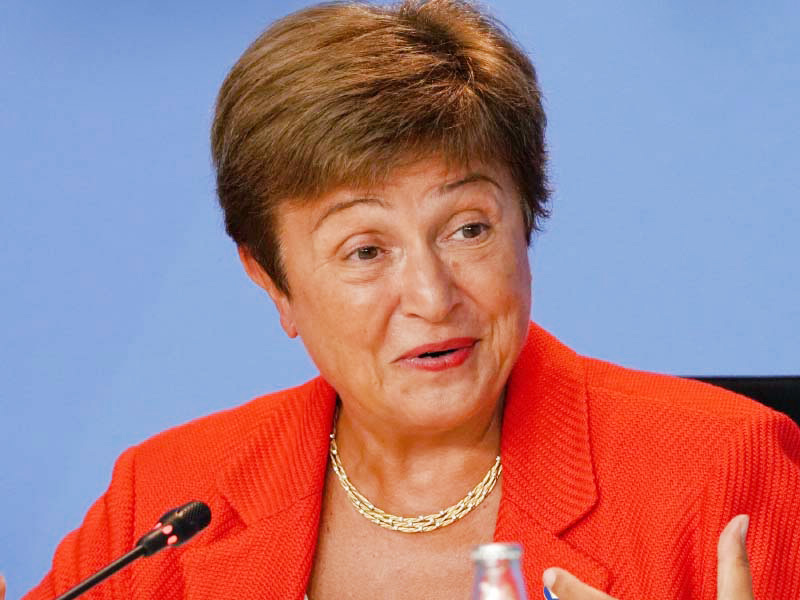
Managing Director of the International Monetary Fund (IMF) Kristalina Georgieva arrived in Colombo yesterday (16) for top level discussions with the government. She is scheduled to leave tomorrow (18) after meeting government authorities and key stakeholders, observing firsthand the impact of Cyclone Ditwah, and discussing ways in which the IMF could support recovery efforts and contribute to building a more resilient future for all Sri Lankans, sources said.
-

 Life style2 days ago
Life style2 days agoMarriot new GM Suranga
-

 Business1 day ago
Business1 day agoMinistry of Brands to launch Sri Lanka’s first off-price retail destination
-

 Features2 days ago
Features2 days agoMonks’ march, in America and Sri Lanka
-

 Midweek Review6 days ago
Midweek Review6 days agoA question of national pride
-

 Business6 days ago
Business6 days agoAutodoc 360 relocates to reinforce commitment to premium auto care
-

 Opinion5 days ago
Opinion5 days agoWill computers ever be intelligent?
-

 Features2 days ago
Features2 days agoThe Rise of Takaichi
-

 Features2 days ago
Features2 days agoWetlands of Sri Lanka:


